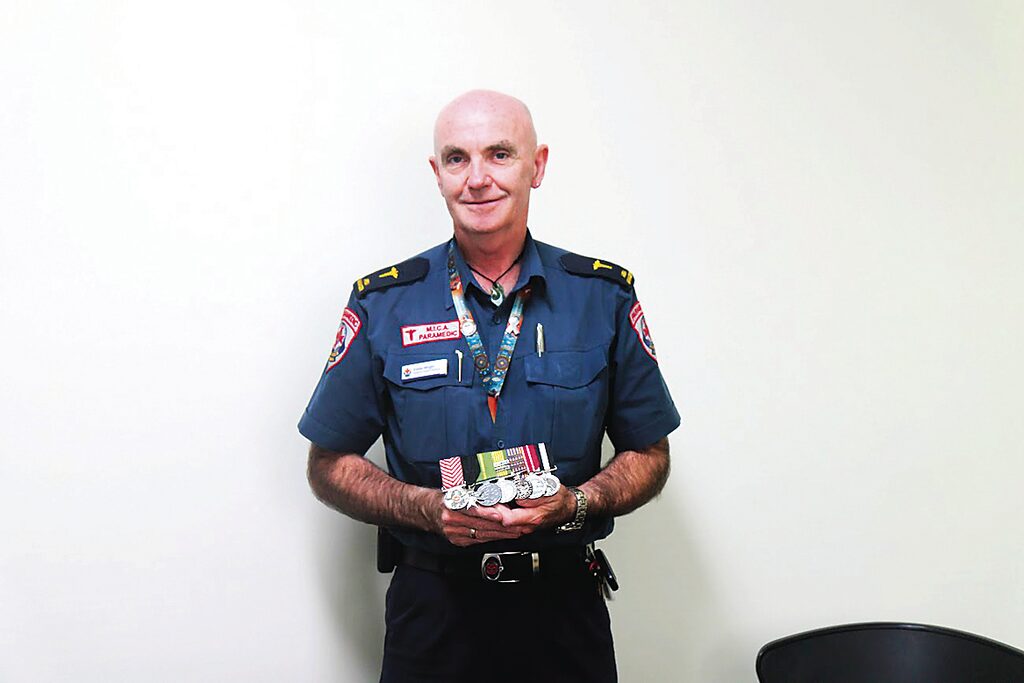By KATRINA BRANDON
SERVING in multiple Ambulance Victoria (AV) roles throughout the years, Moe’s Gippsland Regional Support Manager, Edward (Eddie) John Wright was one of six highly regarded AV personnel awarded with an Ambulance Service Medal (ASM) in this year’s national honours.
The ASM recognises distinguished service by members of Australian ambulance services and is awarded to a select group of outstanding ambulance personnel nominated by their peers. It acknowledges their incredible achievements, service, and contribution to their communities.
Mr Wright told the Express: “It is a very special award in where it sits on the Australian Honour System, and to have received it is a real privilege.”
“It is an honour to receive it. I didn’t expect it to happen. I think it is an award that really sits for the people you work with as well because it is all a team effort all the way through. When there is a low number of them, people we employ, it’s a real honour.”
In 1990, Mr Wright joined AV as a paramedic. He has since gone on to serve as a MICA paramedic, group manager, and regional support manager for Gippsland for the past 15 years. In his role, he oversees financial operations, emergency management, and community engagement, while championing Indigenous heritage and reconciliation efforts.
Before starting with AV, Mr Wright began his career as a carpenter, getting an apprenticeship when Loy Yang was built. Later, he enrolled in the military and was posted in Darwin, starting a multi-skilling career towards AV.
Throughout his career, Mr Wright has played support roles in the 2014 Hazelwood Mine Fire, the 2003, 2006, 2009, 2015/16, and 2019/20 bushfires. The Victorian Bushfires Royal Commission highlighted his role in evacuating Neerim Hospital, and he was an AV representative appearing before the commission. He also played a crucial role in post-fire recovery efforts.
“We have a role called the Regional Health Commander. Some of our senior paramedics normally perform it. I’m one of those people who undertakes it in a rotating roster,” he explained.
“In the 2009 fires, we actually had fires in the landscape a week before Black Saturday started, so we already had instant control centres up and running. I was in incident control as Regional Health Commander, which lasted 35 days.”











